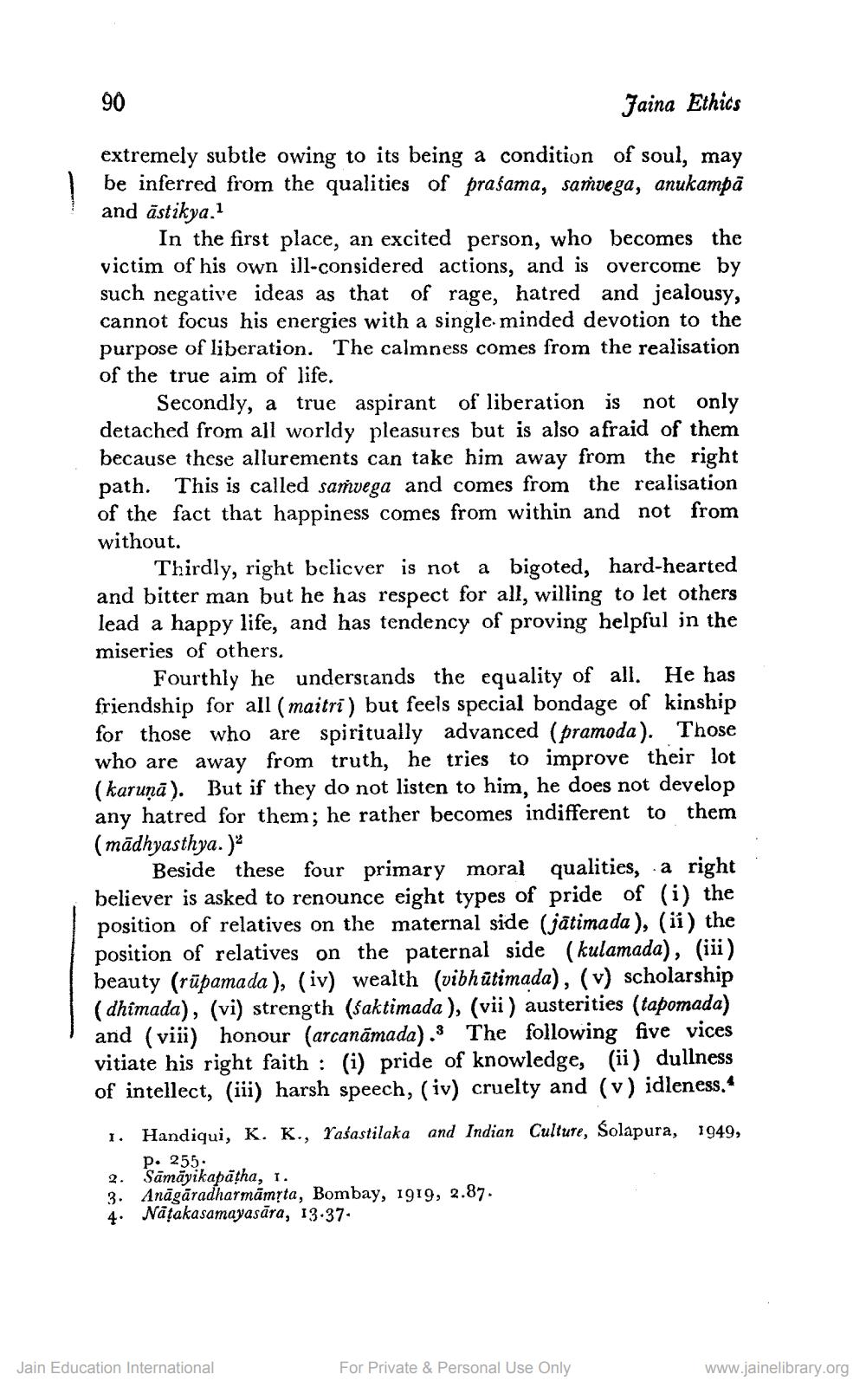________________
90
Jaina Ethics
extremely subtle owing to its being a condition of soul, may be inferred from the qualities of prasama, samvega, anukampā and ästikya.1
In the first place, an excited person, who becomes the victim of his own ill-considered actions, and is overcome by such negative ideas as that of rage, hatred and jealousy, cannot focus his energies with a single minded devotion to the purpose of liberation. The calmness comes from the realisation of the true aim of life.
Secondly, a true aspirant of liberation is not only detached from all worldy pleasures but is also afraid of them because these allurements can take him away from the right path. This is called samvega and comes from the realisation of the fact that happiness comes from within and not from without.
Thirdly, right believer is not a bigoted, hard-hearted and bitter man but he has respect for all, willing to let others lead a happy life, and has tendency of proving helpful in the miseries of others.
Fourthly he understands the equality of all. He has friendship for all (maitri) but feels special bondage of kinship for those who are spiritually advanced (pramoda). Those who are away from truth, he tries to improve their lot (karuņā). But if they do not listen to him, he does not develop any hatred for them; he rather becomes indifferent to them (mādhyasthya.)
Beside these four primary moral qualities, a right believer is asked to renounce eight types of pride of (i) the position of relatives on the maternal side (jatimada), (ii) the position of relatives on the paternal side (kulamada), (iii) beauty (rupamada), (iv) wealth (vibhutimada), (v) scholarship (dhimada), (vi) strength (saktimada), (vii) austerities (tapomada) and (viii) honour (arcanamada). The following five vices vitiate his right faith: (i) pride of knowledge, (ii) dullness of intellect, (iii) harsh speech, (iv) cruelty and (v) idleness.*
I.
Handiqui, K. K., Yasastilaka and Indian Culture, Solapura, 1949,
p. 255.
2. Samayikapatha, 1.
3. Anāgāradharmamṛta, Bombay, 1919, 2.87.
4. Naṭakasamayasāra, 13.37.
Jain Education International
For Private & Personal Use Only
www.jainelibrary.org




